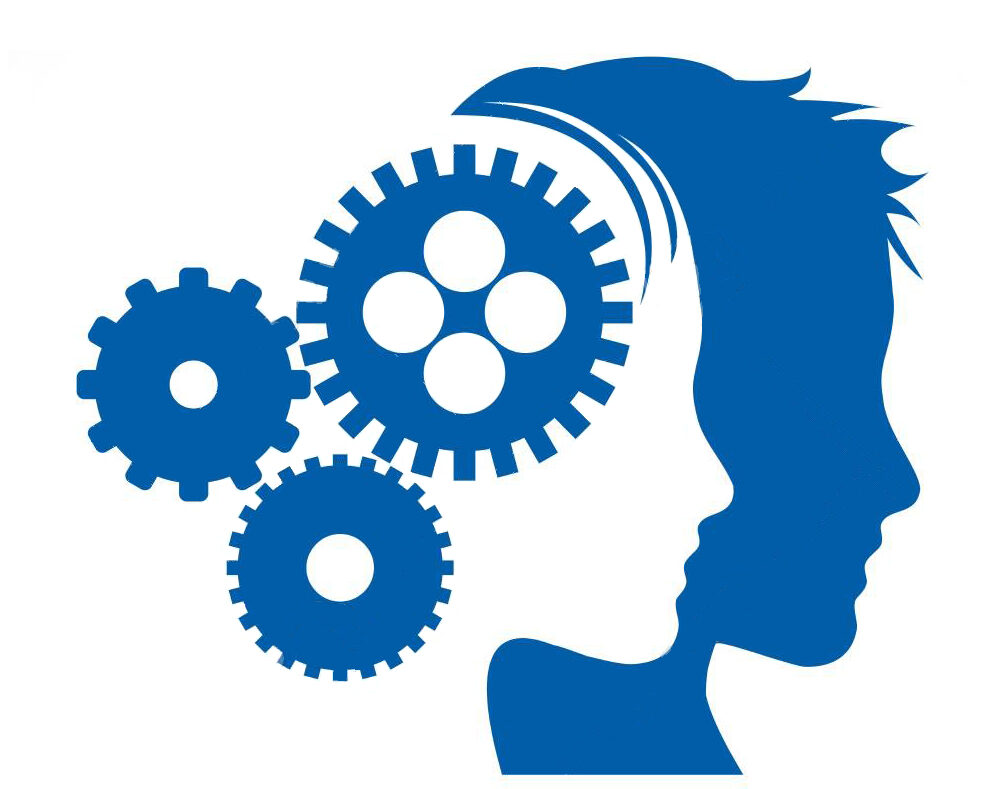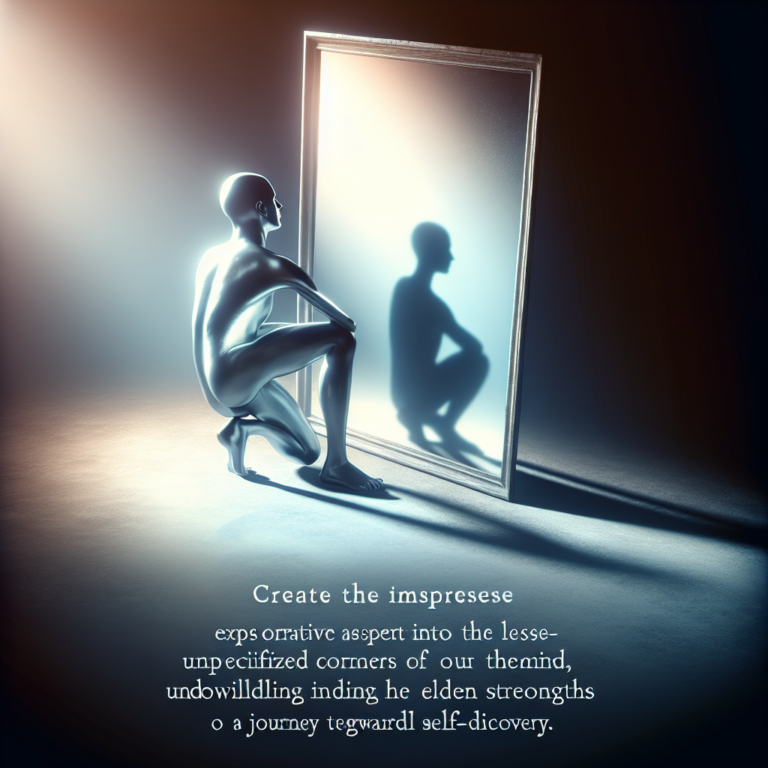Have you ever found yourself wondering, “Why is everyone so mean to me?” It’s a common question that many of us have asked ourselves at some point. But have you ever considered that the answer might lie within your own beliefs? According to the law of assumption, if you believe that people are mean, you’ll inadvertently manifest that reality. In other words, your perception of others may be influencing their behavior towards you. In this article, we will explore the power of belief and how it can shape our interactions with others. So, get ready to challenge your assumptions and discover the keys to a more positive and harmonious social experience.
The Effects of Negative Beliefs
Negative beliefs can have significant impacts on various aspects of an individual’s life. They can shape one’s self-perception, influence relationships with others, and even affect overall well-being. Recognizing and understanding these effects is crucial in order to address and overcome these negative beliefs. Two significant effects of negative beliefs are the self-fulfilling prophecy and confirmation bias.
Self-Fulfilling Prophecy
The self-fulfilling prophecy refers to the phenomenon where a person’s beliefs about themselves or others can actually lead to behaviors and outcomes that align with those beliefs. For example, if you believe that you are not good enough, you may start doubting your abilities and consequently, perform poorly in certain tasks. This reinforces your negative belief and perpetuates a cycle of self-doubt and underachievement.
To break this cycle, it’s important to challenge and reframe negative beliefs by focusing on positive affirmations and actions. By consciously believing in your capabilities and setting realistic goals, you can create a positive self-fulfilling prophecy that facilitates personal growth and success.
Confirmation Bias
Confirmation bias is the tendency to seek out and interpret information in a way that confirms preexisting beliefs or expectations. When individuals hold negative beliefs about themselves, they may unintentionally seek out evidence that supports those beliefs while disregarding any contradictory information. This can further reinforce negative beliefs and limit personal growth.
To counter confirmation bias, it is essential to approach situations with an open mind and maintain a willingness to consider alternate perspectives. Actively seeking out diverse opinions and feedback can help challenge negative beliefs and foster personal development.
Low Self-esteem and Insecurity
Negative beliefs often contribute to low self-esteem and feelings of insecurity. These feelings can stem from various factors, including past experiences and a lack of self-confidence.
Influence of Past Experiences
Negative experiences, especially during childhood, can significantly impact an individual’s self-esteem and sense of self-worth. Repeated instances of criticism, rejection, or bullying can instill negative beliefs about oneself, fueling insecurity and a constant need for validation.
Acknowledging and addressing past experiences through therapy, self-reflection, or support groups can help individuals break free from the grip of negative beliefs and build a healthier self-image.
Lack of Self-Confidence
Negative beliefs often go hand in hand with a lack of self-confidence. When you constantly doubt your abilities and worth, it becomes challenging to believe in yourself and take risks. This can hinder personal growth and limit opportunities for success.
To build self-confidence, it’s important to celebrate small achievements, set achievable goals, and practice self-compassion. Surrounding yourself with supportive and encouraging individuals can also provide the necessary boost to overcome self-doubt.

Lack of Empathy and Understanding
Negative beliefs not only affect an individual’s self-perception but also their ability to empathize and connect with others. This lack of empathy and understanding can arise from socialization and upbringing, as well as an inability to relate to others.
Socialization and Upbringing
The way we are raised and the values instilled in us during childhood can significantly impact our ability to empathize with others. Negative beliefs perpetuated by a hostile or unsupportive environment can hinder the development of empathy, leading to a lack of understanding and compassion towards others.
However, recognizing the impact of socialization and actively seeking to unlearn negative beliefs can pave the way for cultivating empathy and fostering healthier relationships.
Inability to Relate to Others
Negative beliefs about oneself can also make it difficult to relate to and understand others. When we are constantly focused on our own flaws and insecurities, it becomes challenging to empathize with the experiences and emotions of others.
By engaging in active listening, practicing empathy, and seeking to understand different perspectives, individuals can gradually overcome their own negative beliefs and develop more fulfilling connections with others.
Communication Challenges
Negative beliefs can significantly impact communication skills, leading to misinterpretation and ineffective expressions.
Misinterpretation
When individuals hold negative beliefs about themselves or others, they may interpret communication in a way that aligns with those beliefs. Words or actions that are neutral or even positive may be misconstrued as negative, perpetuating a cycle of misunderstanding and strained relationships.
To overcome misinterpretation, it is essential to practice active listening and clarify intentions through open and honest communication. Being aware of personal biases and consciously choosing to interpret messages objectively can foster healthier and more effective communication.
Ineffective Expressions
Negative beliefs can impede effective communication by influencing one’s ability to express oneself assertively and confidently. Fear of judgment and rejection may lead to passive or aggressive communication styles, hindering true understanding and connection.
By recognizing and addressing negative beliefs, individuals can work towards developing assertive communication skills. This involves expressing thoughts and feelings honestly, while respecting the perspectives of others. Building self-confidence and seeking assertiveness training can be beneficial in improving communication patterns.

Jealousy and Envy
Negative beliefs can often manifest as jealousy and envy, leading to unhealthy comparison and a fear of inadequacy.
Comparison and Competition
When individuals hold negative beliefs about themselves, they may constantly compare themselves to others, leading to feelings of jealousy and envy. This comparison often focuses on superficial qualities such as appearance, success, or social status, rather than recognizing one’s unique talents and strengths.
To combat jealousy and envy, it is vital to shift the focus towards self-acceptance and self-appreciation. Celebrating personal achievements and fostering a sense of gratitude for one’s own journey can help overcome the negative cycle of comparison and competition.
Fear of Inadequacy
Negative beliefs can breed a fear of inadequacy, causing individuals to doubt their abilities and accomplishments. This fear can hinder personal growth and prevent individuals from pursuing their passions and ambitions.
Challenging the fear of inadequacy starts with recognizing that everyone has their own journey and unique set of talents. Embracing a growth mindset, focusing on personal progress rather than comparing oneself to others, and seeking support from mentors or trusted individuals can help overcome the fear of inadequacy.
Negative Attitudes and Behaviors
Negative beliefs can manifest in negative attitudes and behaviors, such as bullying, harassment, and psychological projection.
Bullying and Harassment
Negative beliefs about oneself can sometimes lead to projecting those beliefs onto others through bullying and harassment. When individuals feel powerless or inadequate, they may try to regain a sense of control or superiority by demeaning or mistreating others.
Addressing negative attitudes and behaviors requires a comprehensive approach that involves education, raising awareness, and fostering empathy. Creating safe environments and promoting inclusive values can help prevent and combat bullying and harassment.
Psychological Projection
Psychological projection refers to attributing one’s negative traits or beliefs onto others. When individuals are unable to confront and address their own negative beliefs, they may project those beliefs onto people around them, leading to strained relationships and a cycle of negative interactions.
Engaging in self-reflection and therapy can be instrumental in identifying and addressing deep-rooted negative beliefs that may contribute to psychological projection. By consciously challenging and reframing these beliefs, individuals can cultivate healthier relationships and take responsibility for their own actions.

External Factors
While negative beliefs often originate internally, external factors such as cultural and societal norms, as well as group dynamics, can further perpetuate and reinforce these beliefs.
Cultural and Societal Norms
Cultural and societal norms play a significant role in shaping beliefs and behaviors. Negative beliefs about oneself or others may arise from societal pressure to conform to certain beauty standards, success benchmarks, or societal expectations.
Recognizing and challenging these norms is essential in reclaiming autonomy over one’s own beliefs and fostering self-acceptance. Embracing diversity and promoting inclusive values can help counteract the negative impact of cultural and societal norms.
Group Dynamics
The dynamics within groups can also influence and reinforce negative beliefs. Peer groups, social circles, or workplace environments that tolerate or promote negativity can perpetuate negative beliefs and behaviors.
Creating a positive and supportive group dynamic involves fostering open communication, promoting empathy, and actively challenging negative beliefs within the group. Through collective effort, individuals can inspire and uplift each other, facilitating personal growth and well-being.
Addressing Mean Behavior
Addressing mean behavior requires a multifaceted approach that involves self-reflection and personal growth, as well as seeking support and guidance.
Self-reflection and Personal Growth
Recognizing and acknowledging one’s own negative beliefs and behaviors is the first step towards addressing mean behavior. Engaging in self-reflection and introspection allows individuals to identify the sources of their negativity and work towards personal growth.
Through self-reflection, individuals can gain insights into their triggers, biases, and patterns of behavior. This awareness paves the way for personal growth, empowering individuals to challenge and transform their negative beliefs and behaviors.
Seeking Support and Guidance
Addressing mean behavior can be a challenging process that often requires support and guidance from others. Seeking professional help from therapists, counselors, or coaches can provide individuals with the necessary tools, techniques, and support systems to overcome negative beliefs and behaviors.
Additionally, surrounding oneself with supportive and understanding individuals can provide a safe space for reflection and growth. Joining support groups, seeking mentorship, or engaging in compassionate communities can foster personal transformation and reinforce positive beliefs and behaviors.

Practicing Kindness and Empathy
Building a foundation of kindness and empathy is crucial in breaking the cycle of negative beliefs and behaviors. By actively practicing kindness and empathy towards oneself and others, individuals can create a ripple effect of positivity and understanding.
The Ripple Effect
Small acts of kindness and empathy have the power to create a ripple effect, influencing the attitudes and behaviors of both the giver and the recipient. By offering genuine support, compassion, and understanding, individuals can inspire others to adopt a similar mindset and break free from negative beliefs.
Building Positive Relationships
Positive relationships are essential in fostering a sense of belonging and nurturing personal growth. Cultivating empathy, active listening, and open communication within relationships can contribute to a supportive and encouraging environment.
Investing in relationships that prioritize kindness and empathy can help individuals overcome negative beliefs, as these relationships provide validation, understanding, and acceptance. By building positive relationships, individuals can challenge and transform their negative beliefs together.
Changing Negative Beliefs
Changing negative beliefs is a process that involves challenging assumptions and developing a growth mindset.
Challenging Assumptions
Negative beliefs often stem from assumptions and distorted perceptions of oneself and others. It is essential to challenge these assumptions by gathering evidence, seeking diverse perspectives, and critically evaluating the validity of negative beliefs.
Questioning the basis of negative beliefs allows individuals to challenge and replace them with more realistic and positive interpretations. This cognitive restructuring can pave the way for personal growth and a healthier self-image.
Developing a Growth Mindset
Adopting a growth mindset is a powerful tool in changing negative beliefs. A growth mindset emphasizes the belief that abilities and qualities can be developed through dedication, effort, and learning from mistakes.
By embracing challenges, seeking opportunities for growth, and reframing failures as learning experiences, individuals with a growth mindset can break free from the constraints of negative beliefs. Cultivating a growth mindset empowers individuals to persevere, embrace change, and unlock their full potential.
In conclusion, negative beliefs have far-reaching effects on individuals, impacting self-esteem, relationships, communication, and attitudes. Recognizing and understanding these effects is crucial in order to address and transform negative beliefs. By challenging assumptions, practicing self-reflection, seeking support, and cultivating empathy and kindness, individuals can break free from the grip of negativity and foster personal growth and well-being. Embracing the power of positive beliefs and behaviors not only transforms individuals but also creates a ripple effect, leading to a more compassionate and inclusive society.









